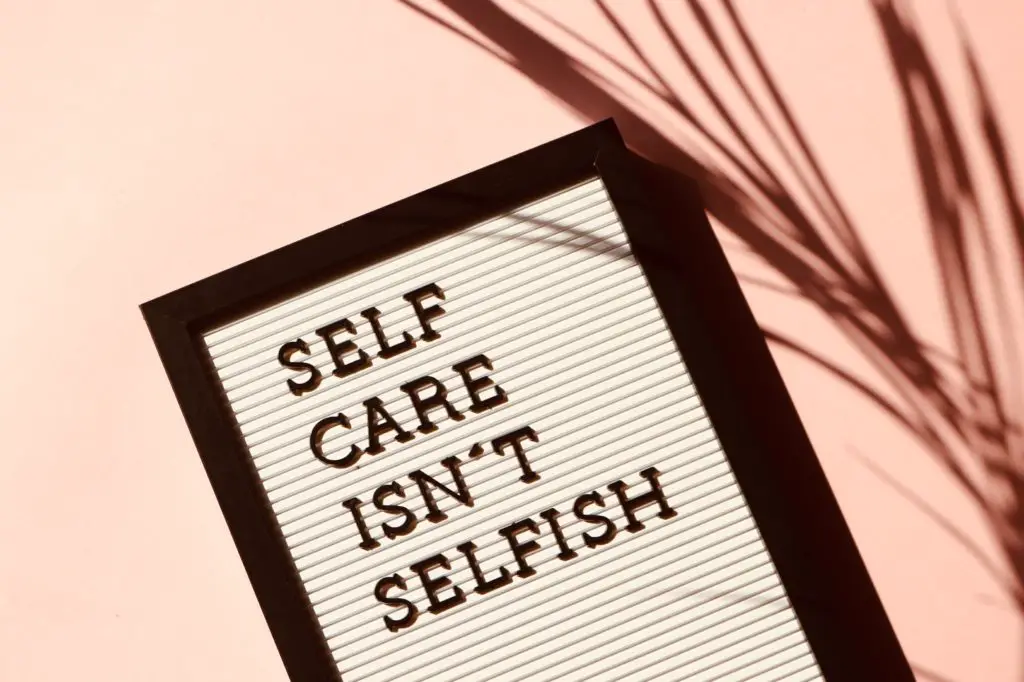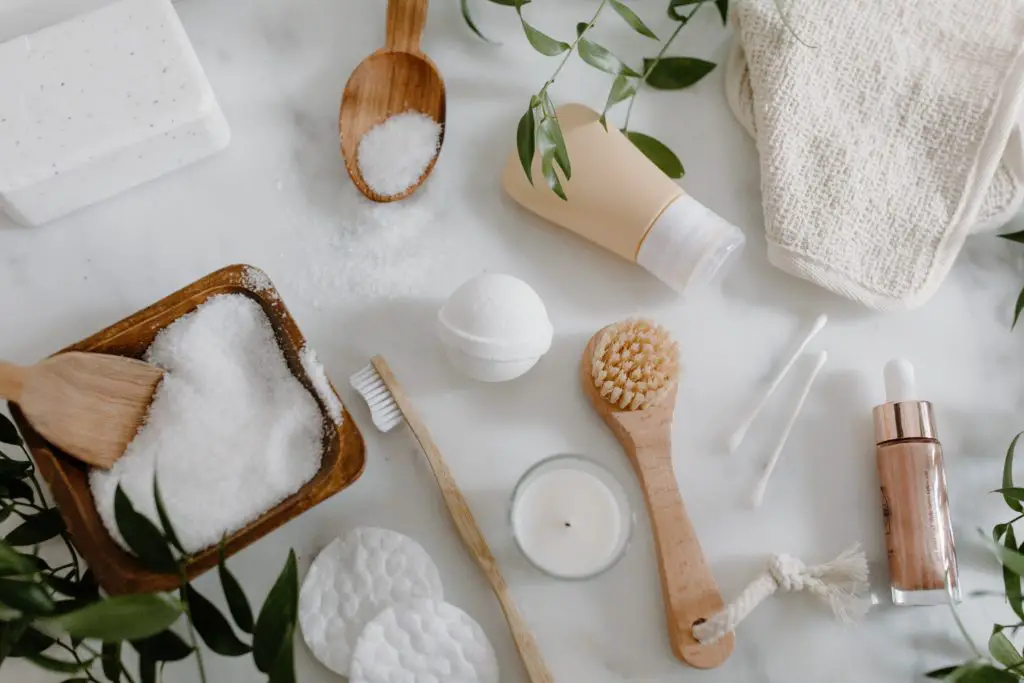
101 Self Care: Nurture Yourself and Kickstart Your Well-being
Hello bestie! It’s self care today!
Life can get pretty crazy, right? We’re constantly juggling responsibilities, meeting deadlines, and taking care of others. But amidst all the chaos, we often forget one crucial thing—ourselves. Yep, I’m talking about self-care, my friend.
Now, hold on a second before you roll your eyes and dismiss it as some trendy buzzword. Self-care is not just about treating yourself to a spa day or indulging in a pint of ice cream (although those things can be part of it!). It’s about nurturing your mind, body, and soul in a way that helps you thrive in every aspect of life.
In this article, we’re diving deep into the world of self-care. We’ll explore what it really means, why it’s so important, and most importantly, how to actually make it a part of our daily lives. So, get ready to embark on a journey of self-discovery and learn how to prioritize your own well-being like a boss.
Because let’s face it, my friend, you deserve to feel good, energized, and fulfilled. So, grab a cozy blanket, make yourself a cup of tea, and let’s dig into the art of self-care together. Trust me, it’s going to be life-changing.
Definition of Self Care
According to Wikipedia, self-care has been defined as the process of establishing behaviors to ensure holistic well-being of oneself, to promote health, and actively manage illness when it occurs.
What is Self Care?
First things first, let’s clear up any confusion. Self-care is not just about treating yourself to indulgent spa days or binge-watching your favorite TV series (although those things can be part of it!). It’s about intentionally taking care of yourself—physically, mentally, and emotionally.
Think of it as nourishing your mind, body, and soul. It’s about giving yourself permission to prioritize your needs and well-being without feeling guilty. Self-care is a way to recharge, rejuvenate, and show yourself some much-needed love.
Examples of Self Care (these are my personal top 10 self-care tips):
- a long, soothing bath with your favorite bath salts and candles
- going for a walk in nature to clear your mind and get some fresh air
- practicing yoga or meditation to calm your thoughts and center yourself
- journaling to express your emotions and reflect on your day
- treating yourself to a relaxing massage or spa day
- indulging in a hobby or creative activity that brings you joy, such as painting, playing an instrument, or gardening, or whatever you enjoy doing
- setting aside time for quality sleep and establishing a soothing bedtime routine
- nourishing your body with wholesome foods and staying hydrated
- practicing deep breathing exercises to reduce stress and promote relaxation
- seeking support and connection by reaching out to loved ones or joining a supportive community

The Importance of Self Care
Picture this: you’re running on empty, constantly stressed, and feeling overwhelmed. Sound familiar? When we neglect self-care, we’re more prone to burnout, increased stress levels, and a decline in our overall health.
On the flip side, when we make self-care a priority, we create a strong foundation for better relationships, increased productivity, and improved mental health. It’s like giving yourself permission to fill up your cup first so that you have more to give to others.
Understanding the Different Types of Self Care (What are 5 types of self care)
Self-care can be categorized into various types, each focusing on different aspects of your well-being. By understanding these categories, you can tailor your self-care practices to meet your specific needs.
Mental and Emotional Self Care
Your mental and emotional well-being plays a vital role in your overall happiness and fulfillment. Nurturing your mind and emotions is an essential part of self-care.
Setting Boundaries
Setting boundaries is crucial for maintaining healthy relationships and protecting your mental health. It involves learning to say no when necessary and establishing clear limits with others. By setting boundaries, you create space for yourself and prioritize your own needs.
Practicing Mindfulness
Mindfulness is the practice of being fully present in the current moment. By practicing mindfulness, you cultivate self-awareness, reduce stress, and enhance your ability to cope with challenging situations. Incorporating mindfulness into your daily routine can significantly contribute to your mental and emotional well-being.
Physical Self Care
Caring for your physical health is vital for overall well-being. Engaging in activities that promote physical wellness will not only enhance your physical health but also positively impact your mental and emotional state.
Exercise and Nutrition
Regular exercise and a balanced diet are essential components of physical self-care. Engaging in physical activity releases endorphins, which boost mood and reduce stress. Similarly, nourishing your body with wholesome foods provides the energy and nutrients it needs to function optimally.
Rest and Relaxation
Amidst the hustle and bustle of life, rest and relaxation often take a backseat. However, getting enough sleep, taking breaks, and engaging in relaxation techniques are vital for recharging your body and mind. Prioritize rest and relaxation to maintain optimal physical and mental health.

Social Self Care
Human beings are social creatures, and fostering meaningful connections is essential for our well-being. Social self-care involves nurturing relationships and establishing a support system.
Building Meaningful Connections
Investing time and energy in building and maintaining meaningful relationships contributes to your overall happiness. Surrounding yourself with positive and supportive individuals who uplift and inspire you is an integral part of social self-care.
Setting Realistic Expectations
In the age of social media, it’s easy to compare ourselves to others and fall into the trap of unrealistic expectations. Practice self-compassion and set realistic expectations for yourself in social settings. Remember, it’s about quality, not quantity, when it comes to your social connections.
Creative Self Care
Engaging in creative activities allows you to express yourself, tap into your imagination, and find joy in the process. Creative self-care is an excellent way to nurture your inner artist and add a dose of inspiration to your life.
Engaging in Hobbies
Discovering and engaging in hobbies that bring you joy and fulfillment is a form of creative self-care. Whether it’s painting, writing, playing an instrument, or gardening, find activities that resonate with your soul and make time for them regularly.
Exploring New Art Forms
Step outside your comfort zone and explore new art forms. Trying something new can awaken your creativity and open doors to new passions and interests. Embrace the unknown and allow yourself to grow through artistic exploration.

Self Care Activities
Self-care activities refer to specific actions or practices that promote self-care. These activities encompass a wide range of actions that nurture your well-being, such as taking a bath, practicing yoga, journaling, reading, or engaging in hobbies. They are the tangible and actionable steps you take to prioritize self-care.
TIP: Not sure which activities to try? Get some inspiration here.
Self Care Techniques and Strategies
Mindful Breathing
Practice deep breathing exercises, such as diaphragmatic breathing or box breathing, to promote relaxation and reduce stress.
Body Scan Meditation
Engage in a body scan meditation, where you systematically focus your attention on different parts of your body, promoting relaxation and body awareness.
Progressive Muscle Relaxation
Tense and release different muscle groups to promote physical and mental relaxation. Start from your toes and work your way up to your head.
Guided Imagery
Use guided imagery exercises to create vivid mental images that evoke positive emotions, relaxation, and inner peace.
Loving-Kindness Meditation
Cultivate feelings of compassion and love towards yourself and others through loving-kindness meditation, focusing on sending well-wishes and positive energy.
Grounding Techniques
Utilize grounding exercises to reconnect with the present moment and alleviate anxiety or overwhelm. Examples include grounding through the senses or focusing on your breath.
Emotional Release Exercises
Engage in activities that help release emotions, such as journaling, expressive writing, or engaging in artistic expressions like painting or dancing.
TIP: Download my Self Care Workbook for Journaling for free. CLICK HERE FOR ACCESS.
Self-Compassion Practices
Practice self-compassion exercises, such as writing yourself a compassionate letter or repeating self-compassionate phrases, to cultivate kindness and understanding towards yourself.
Visualization
Use visualization techniques to imagine yourself in a peaceful, serene environment or visualizing desired outcomes to reduce stress and enhance motivation.
Affirmations
Create positive affirmations that resonate with you and repeat them daily to cultivate self-belief, confidence, and a positive mindset.

Developing a Self care Plan
Step 1: Assess Your Current Well-Being
Take a moment to evaluate your current state of well-being. Reflect on areas of your life that may need more attention, such as physical health, mental and emotional well-being, relationships, and hobbies. This self-awareness will guide your self-care plan.
Step 2: Identify Your Self-Care Needs
Consider what activities and practices bring you joy, relaxation, and rejuvenation. Make a list of self-care activities that resonate with you. It could be anything from taking walks in nature, practicing yoga, reading, cooking, or engaging in creative pursuits. Let your imagination roam free.
Step 3: Prioritize Your Self-Care Activities
From your list, prioritize the activities that are most important to you and align with your values. Choose activities that nourish your mind, body, and soul, and that you can realistically incorporate into your daily or weekly routine. Remember, it’s about quality, not quantity.
Step 4: Create a Self-Care Schedule
Designate specific times in your schedule for self-care activities. Treat them as non-negotiable appointments with yourself. Whether it’s early mornings, lunch breaks, or evenings, carve out dedicated time for self-care. Consistency is key to reaping the benefits.
Step 5: Set Realistic Goals
Set realistic and achievable goals for your self-care journey. Start small and gradually build up. For example, aim to practice mindfulness for five minutes a day or take a 30-minute walk three times a week. Setting attainable goals boosts your motivation and ensures long-term success.
TIP: If you need help with building habits and routines, check out this book, which is also available in audio version.
Step 6: Be Flexible and Adapt
Life can throw curveballs, so be prepared to adapt your self-care plan when needed. Stay flexible and open to adjustments. If a particular activity doesn’t resonate with you anymore, feel free to explore new options. Self-care should evolve with you.
Step 7: Practice Self-Compassion
Be kind and compassionate with yourself throughout this process. Self-care is not about perfection; it’s about progress. Embrace the journey, celebrate small wins, and give yourself permission to make mistakes. Self-compassion is the fuel that keeps your self-care plan alive.
Step 8: Review and Refine Regularly
Regularly assess your self-care plan and make adjustments as needed. Our needs and circumstances change over time, so it’s important to ensure that your self-care practices remain relevant and effective. Stay attuned to what truly nourishes and fulfills you.

TIP: Check out my favourite tools for self care that make me feel like a queen even when I’m in the comfort of my home ?
Overcoming Self Care Obstacles
Implementing self-care can sometimes be challenging due to various obstacles. Common obstacles include lack of time, guilt, and feeling selfish. Overcoming these barriers requires a shift in mindset and a commitment to your own well-being. Remember that self-care is a necessary investment in yourself and enables you to show up fully for others.
Frequently Asked Questions
The frequency of self-care practices varies for each person. It’s important to listen to your own needs and find a rhythm that works for you. Whether it’s daily, a few times a week, or even just once a week, prioritize consistent moments of self-care that nourish you.
Absolutely! Self-care is a powerful tool for improving your overall well-being. By taking care of your mind, body, and soul, you’re reducing stress, enhancing resilience, and boosting your happiness and fulfillment. It’s the key to living a more balanced and vibrant life.
Guilt can often creep in when we prioritize ourselves. But remember, my friend, you cannot pour from an empty cup. Taking care of yourself is not selfish—it’s necessary for you to show up fully in your relationships and responsibilities. Embrace self-compassion and let go of guilt.
I hear you, life can get busy! But self-care doesn’t have to be time-consuming. Look for small pockets of time throughout your day where you can engage in self-care activities. It could be as simple as taking a few minutes to meditate, practice deep breathing, or enjoy a mindful cup of tea.
Absolutely! Self-care practices are incredibly effective in managing stress and anxiety. Engaging in activities that help you relax, unwind, and nurture yourself can calm your nervous system, reduce anxiety levels, and promote a sense of inner peace. It’s a powerful antidote to the demands of daily life.








